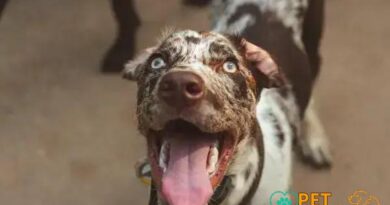O que é Reflexão
What is Reflection?
Reflection, in the context of dog training and behavior, refers to the process of observing and understanding a dog’s actions and reactions. It involves analyzing how a dog interacts with its environment, other animals, and humans. This understanding can help owners and trainers modify behaviors, enhance communication, and build a stronger bond with their canine companions.
The Importance of Reflection in Dog Training
Reflection plays a crucial role in dog training as it allows trainers to assess the effectiveness of their methods. By reflecting on a dog’s progress, trainers can identify which techniques are working and which need adjustment. This iterative process is essential for developing a training plan that caters to the individual needs of each dog, ensuring a more personalized approach to learning.
How to Practice Reflection with Your Dog
Practicing reflection with your dog involves taking time to observe your dog’s behavior in various situations. This could be during training sessions, playtime, or even while on walks. By noting your dog’s reactions to different stimuli, you can gain insights into their personality, preferences, and areas that may require additional focus or training.
Reflection and Canine Behavior
Understanding canine behavior through reflection can significantly improve your relationship with your dog. Dogs communicate through body language, vocalizations, and actions. By reflecting on these signals, owners can better interpret their dog’s needs and emotions, leading to a more harmonious living environment. This understanding can also prevent behavioral issues from escalating.
Using Reflection to Enhance Communication
Effective communication with your dog is vital for a successful training experience. Reflection allows you to evaluate how well you are conveying commands and expectations. By observing your dog’s responses, you can adjust your communication style, ensuring that your dog understands what is being asked of them. This can lead to quicker learning and a more enjoyable training process.
Reflection in Problem-Solving
When faced with behavioral challenges, reflection can be a powerful tool for problem-solving. By analyzing past interactions and identifying patterns, you can uncover the root causes of specific behaviors. This insight enables you to implement targeted strategies to address issues, whether they involve aggression, anxiety, or other concerns.
The Role of Reflection in Socialization
Socialization is a critical aspect of a dog’s development, and reflection can enhance this process. By observing how your dog interacts with other dogs and people, you can identify areas where they may need more exposure or guidance. Reflecting on these experiences helps you create a well-rounded socialization plan that fosters confidence and adaptability in various environments.
Reflection and Positive Reinforcement
Positive reinforcement is a widely used training technique that benefits greatly from reflection. By reflecting on your dog’s responses to rewards, you can determine which reinforcements are most effective. This understanding allows you to tailor your approach, ensuring that your dog remains motivated and engaged during training sessions.
Incorporating Reflection into Daily Routines
Incorporating reflection into your daily routines with your dog can lead to continuous improvement in your relationship. Set aside time each day to observe and think about your dog’s behavior, training progress, and overall well-being. This practice not only enhances your understanding of your dog but also strengthens the bond you share, making for a happier and healthier partnership.



